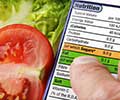Healthy lifestyle can keep diseases at bay. Three most important things to look for in food labels are ingredients, nutrition content and allergen information.

‘Three most important things to look for in food labels are ingredients, nutrition content and allergen information.’





Suahasini speaks to IANSlife about the brand's journey and how one should be cautious when purchasing food packaged with labels that aid weight-loss but don't necessarily mean a healthy lifestyle. Read Excerpts:
Q: What was it that snagged you so hard in a yoga class that you decided to open Yogabar?
A: The sense of immateriality of yoga was a huge part of both my and Anindita's lives. It gave us what we call the goodness of gratitude, to cultivate a healthy relationship with one's life, surroundings, and most importantly one's body. When we initially got into the corporate rigmarole, we worked late hours every day away from family and began finding it very difficult to sustain a healthy diet back then. Healthy snacking options were not widely known but we did notice an unexpressed demand for them. That's when Yoga Bar took form and grew tremendously over the past few years.
Q: Debunk the myth that nutrition information labels in recent years have all been sugar-coated.
Advertisement
While a few of these buzzwords hold some merit, we aim to provide every consumer with as much information we can for them to make an informed choice. We brought the clean label revolution to India and now the industry is following suit. Yoga Bar, as our brand proposition, calls out each ingredient for its naturality.
Advertisement
Q: How's your brand different from others?
A: Yogabar set out to improve the snacking habits of Indians and make consumers more aware of what they're eating with a promise of complete transparency in what the products offer and consist of.
Each of the ingredients that we choose has definite nutritive value. We stay away from ingredients that contribute to empty calories. Our use of sugar is minimal. We don't use any artificial sweeteners, preservatives, or coloring agents. The bulk of any of our products by calories is one of the following ingredients: nuts and seeds, whole grains, and dried fruit; all of which are locally sourced.
The guiding principle that led the brand journey was to offer a product, designed by nutritionists and not marketers, that promises 100 percent clean and natural ingredients with exemplary taste.
We also advocate a 'No-Maida' policy, unlike other brands, having recently launched our childrens' nutritional snacking segment with new mixes, 'Yo Chos and Yo Fills' with the Power of seven consisting of five whole grains (Jowar, Bajra, Ragi, Quinoa, Oats) and 2 Dals (Moong and Channa) ensuring that kids are not consuming maida-filled snacks.
On the back of our products, instead of celebrities, we feature neighborhood advocates whose stories we can all connect with. We are on the path to becoming a household name in the snacking segment as we are a brand that Indians trust as we have been able to build that integrity for ourselves.
Q: What should one look for in a nutrition information label when buying packaged food?
A: The information on food labels is intended to help consumers become savvy about their food choices. The front, back and sides of a package are filled with information to inform us what the food contains and to guide us in making healthier selections of processed foods. However, all the numbers, percentages, and sometimes complex-sounding ingredients can lead to more confusion than clarity.
The three key things that food labels offer in terms of information include ingredients, nutrition content, and allergen information. The second gives well-defined segregation of macros detailing what amounts of calories, total fats, saturated fats, carbohydrates, proteins, and vitamins the food contains. This information is extremely crucial when you're planning to make some dietary changes with some additions and restrictions to your daily diet. It also helps you reject certain food items if you have an intolerance or allergy to certain ingredients such as dairy, nuts, etc.
When you read food labels and pay attention to the 'serving size' mentioned, you can keep a tab on how many servings you are actually consuming. In case you're consuming three servings of a particular food item, it means you're consuming triple the amount of calories mentioned for a single serving.
If you read your food labels well, you will be able to identify foods that contain higher amounts of trans fats and saturated fats. When choosing healthy options, go for foods that contain lower amounts of saturated fats. Ignore foods that contain 'partially hydrogenated fats' since they are high in trans fats as well.
Source-IANS














